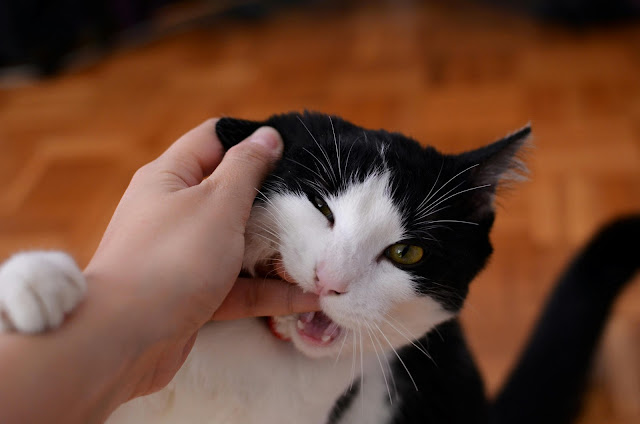How to Properly Care for Your Cat: Nutrition, Grooming, and More
How to Properly Care for Your Cat: Nutrition, Grooming, and More
Bringing a cat into your home is a rewarding experience, but proper care is essential to ensure they lead a healthy and happy life. From nutrition to grooming and beyond, here’s a comprehensive guide on how to care for your feline friend.
1. Nutrition: Feeding Your Cat the Right Way
A well-balanced diet is crucial for your cat’s overall health. Cats are obligate carnivores, which means they require animal-based proteins in their diet. Here's what you need to know about feeding your cat:
- High-Quality Cat Food: Choose a high-quality cat food that lists meat as the primary ingredient. Look for a balance of protein, fats, and essential nutrients like taurine, which is vital for your cat’s heart and vision health.
- Avoid Human Food: While it may be tempting to share your meals with your cat, many human foods can be harmful to them. Foods like chocolate, onions, garlic, and grapes are toxic to cats.
- Portion Control: Overfeeding can lead to obesity, which can cause serious health problems such as diabetes and joint issues. Stick to the recommended portion sizes based on your cat’s weight, age, and activity level.
- Fresh Water: Ensure your cat has access to clean, fresh water at all times. Cats can be picky drinkers, so consider using a water fountain to encourage hydration.
2. Grooming: Keeping Your Cat Clean and Healthy
While cats are naturally clean animals, regular grooming helps keep their coats healthy and free of tangles, especially for long-haired breeds.
- Brushing: Regular brushing removes loose fur and reduces the risk of hairballs. Short-haired cats can be brushed once a week, while long-haired cats may need daily brushing.
- Nail Trimming: Keep your cat’s nails trimmed to prevent overgrowth and discomfort. Most cats need their nails trimmed every few weeks. If your cat is resistant, consult a vet or professional groomer.
- Ear Cleaning: Check your cat’s ears for wax buildup or signs of infection, such as redness or a foul odor. Use a vet-approved ear cleaner and a cotton ball to gently clean the outer ear.
- Dental Care: Cats are prone to dental issues, so brushing their teeth or using dental treats can help prevent tartar buildup and gum disease.
3. Exercise and Play: Keeping Your Cat Active
Exercise is just as important for cats as it is for humans. Active cats are less likely to become overweight and are generally happier and healthier.
- Interactive Play: Use toys like feather wands, laser pointers, and balls to engage your cat in daily play sessions. Play helps stimulate their natural hunting instincts and keeps them mentally and physically active.
- Cat Trees and Scratching Posts: Providing cat trees and scratching posts gives your cat a place to climb, stretch, and scratch. Scratching helps them maintain their claws and reduces stress.
- Exploration: Cats love to explore their surroundings. Consider setting up a safe indoor space with climbing shelves, cozy hiding spots, and window perches where they can watch the outside world.
4. Regular Veterinary Care: Health Checkups and Vaccinations
Routine vet visits are essential to maintaining your cat’s health. Schedule annual checkups to monitor your cat’s weight, dental health, and overall condition.
- Vaccinations: Keep your cat’s vaccinations up to date to protect against common diseases like feline leukemia, rabies, and upper respiratory infections.
- Parasite Prevention: Use flea and tick prevention treatments, especially if your cat spends time outdoors. Also, regular deworming is important to prevent internal parasites.
- Spaying/Neutering: Spaying or neutering your cat not only helps control the pet population but also reduces the risk of certain cancers and behavioral problems.
5. Litter Box Care: Maintaining Cleanliness
- Litter Box Location: Place the litter box in a quiet, accessible area where your cat feels safe. Make sure it’s not near their food or water dishes.
- Cleaning Routine: Scoop the litter box daily and completely change the litter at least once a week. Regular cleaning helps prevent odors and ensures your cat continues to use the box.
- Multiple Cats: If you have more than one cat, it’s best to provide multiple litter boxes to avoid territorial issues.
6. Socialization and Bonding
- Spend Quality Time: Make time to cuddle, pet, and talk to your cat. This strengthens your bond and helps reduce stress in your feline companion.
- Respect Their Space: Cats appreciate their personal space, so avoid overwhelming them with too much attention. Let your cat approach you when they’re ready for affection.
- Provide Mental Stimulation: Puzzle feeders and interactive toys can keep your cat mentally sharp and prevent boredom-related behavior problems like scratching furniture or excessive meowing.
Conclusion: A Happy, Healthy Cat
Caring for your cat properly involves attention to their nutritional needs, grooming, exercise, and regular vet checkups. By following these guidelines, you can ensure your feline friend leads a long, healthy, and happy life. Remember, every cat is unique, so pay attention to your cat’s individual preferences and adjust your care routine accordingly.
.png)







.jpeg)



